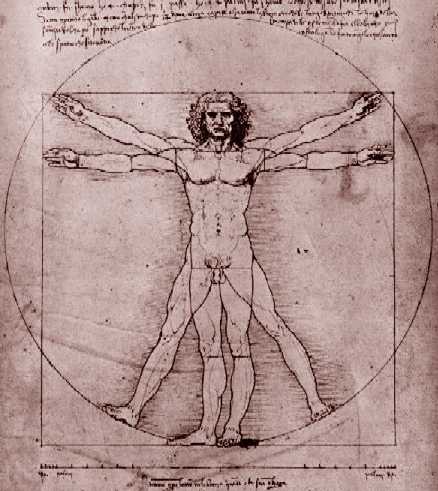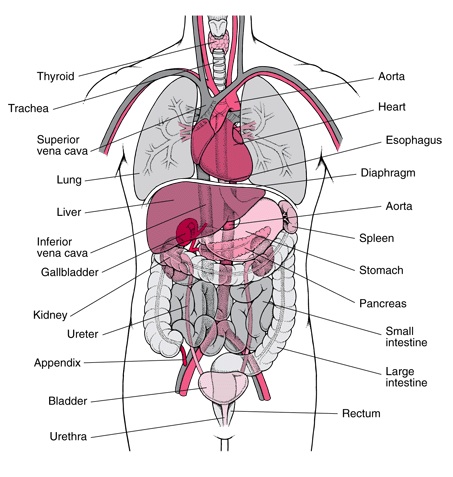There are 78 organs in the human body.It is difficult to give the right answer. There are 13 major organ systems in human body. The organs work together systematically to keep you alive and active and each plays a specific role related to your health and development. By definition, an organ is a structure that comprises at least two kinds of tissue that function together for a common purpose. Some of the most important organs in the human body are the skin, liver, heart and lungs.
Regional groups
- Head and neck – includes everything above the thoracic inlet.
- Upper limb – includes the hand, wrist, forearm, elbow, arm, and shoulder.
- Thorax – the region of the chest from the thoracic inlet to the thoracic diaphragm.
- Human abdomen to the pelvic brim or to the pelvic inlet.
- The back – the spine and its components, the vertebrae, sacrum, coccyx, and intervertebral disks.
- Pelvis and Perineum – the pelvis consists of everything from the pelvic inlet to the pelvic diaphragm. The perineum is the region between the sex organs and the anus.
- Lower limb – everything below the inguinal ligament, including the hip, the thigh, the knee, the leg, the ankle, and the foot.
Internal organs (by region)
Head and neck
- Brain
- Amygdala
- Basal ganglia
- Brain stem
- medulla
- midbrain
- pons
- Cerebellum
- Cerebral cortex
- Hypothalamus
- Limbic system
- Eye
- Pituitary
- Thyroid and Parathyroids
Thorax
- Heart
- Lung
- Esophagus
- Thymus
- Pleura
Abdomen and pelvis (both sexes)
- Adrenals
- Appendix
- Bladder
- Gallbladder
- Large intestine
- Small intestine
- Kidney
- Liver
- Pancreas
- Spleen
- Stomach
Male pelvis
- Prostate
- Testes
Female pelvis
- Ovaries
- Uterus
Major organ systems
- Circulatory system: pumping and channeling blood to and from the body and lungs with heart, blood, and blood vessels.
- Digestive System: digestion and processing food with salivary glands, esophagus, stomach, liver, gallbladder, pancreas, intestines, rectum, and anus.
- Endocannabinoid system: neuromodulatory lipids and receptors involved in a variety of physiological processes including appetite, pain-sensation, mood, motor learning, synaptic plasticity, andmemory.
- Endocrine system: communication within the body using hormones made by endocrine glands such as the hypothalamus, pituitary or pituitary gland, pineal body or pineal gland, thyroid,parathyroids, and adrenals or adrenal glands
- Integumentary system: skin, hair and nails
- Immune system: the system that fights off disease; composed of leukocytes, tonsils, adenoids, thymus, and spleen.
- Lymphatic system: structures involved in the transfer of lymph between tissues and the blood stream, the lymph and the nodes and vessels that transport it.
- Musculoskeletal system: muscles provide movement and a skeleton provides structural support and protection with bones, cartilage, ligaments, and tendons.
- Nervous system: collecting, transferring and processing information with brain, spinal cord, peripheral nerves, and nerves
- Reproductive system: the sex organs; in the female; ovaries, fallopian tubes, uterus, vagina, mammary glands, and in the male; testes, vas deferens, seminal vesicles, prostate, and penis.
- Respiratory system: the organs used for breathing, the pharynx, larynx, trachea, bronchi, lungs, and diaphragm.
- Urinary system: kidneys, ureters, bladder and urethra involved in fluid balance, electrolyte balance and excretion of urine.
- Vestibular system: contributes to our balance and our sense of spatial orientation.






IT IS BEST TO DESCRIBE SYSTEMS AS PER ORIGIN DURING EMBRYOGENESIS
SAY LOWER TWO THIRD VAGINA
LOWER ANAL CANAL SYSTEM
THAT CAN GIVE MORE AUTHENTIC BIOLOGICAL ANSWER THAN DEAD ANATOMY OR MICROSCOPIC.
TALKING IN ALL CAPS WILL MAKE NO ONE TAKE YOU SERIOUSLY!!!
So don’t do it.
i think the systems are very important to learn.u must be mature and good to read them!
I think it is weird that we have sooooo many organs!!
microcirclution in our body is main important thing that we must be take care.
Maybe you want to explain the diference between organs and glands, not just put them all together. As an example, liver is a gland, not an organ.
Really informative excellent work
thats nice but the nervous system is the best organ system in our body
haha im in health classs!!!! HI EVERYONE!!!
trés intéressants
Perfect article superb.
this information is very useful for me thanks a lot
Why so many organs???
I LOVE LOVE LOVE HOW THE ENDOCANNBINOID SYSTEM IS INCLUDED!!! THANK YOU FOR EDUCATING THE TRUTH! CONSUME YOUR CANNABIS AND FEED YOUR ENDOCANNABINOID SYSTEM!
useful matter